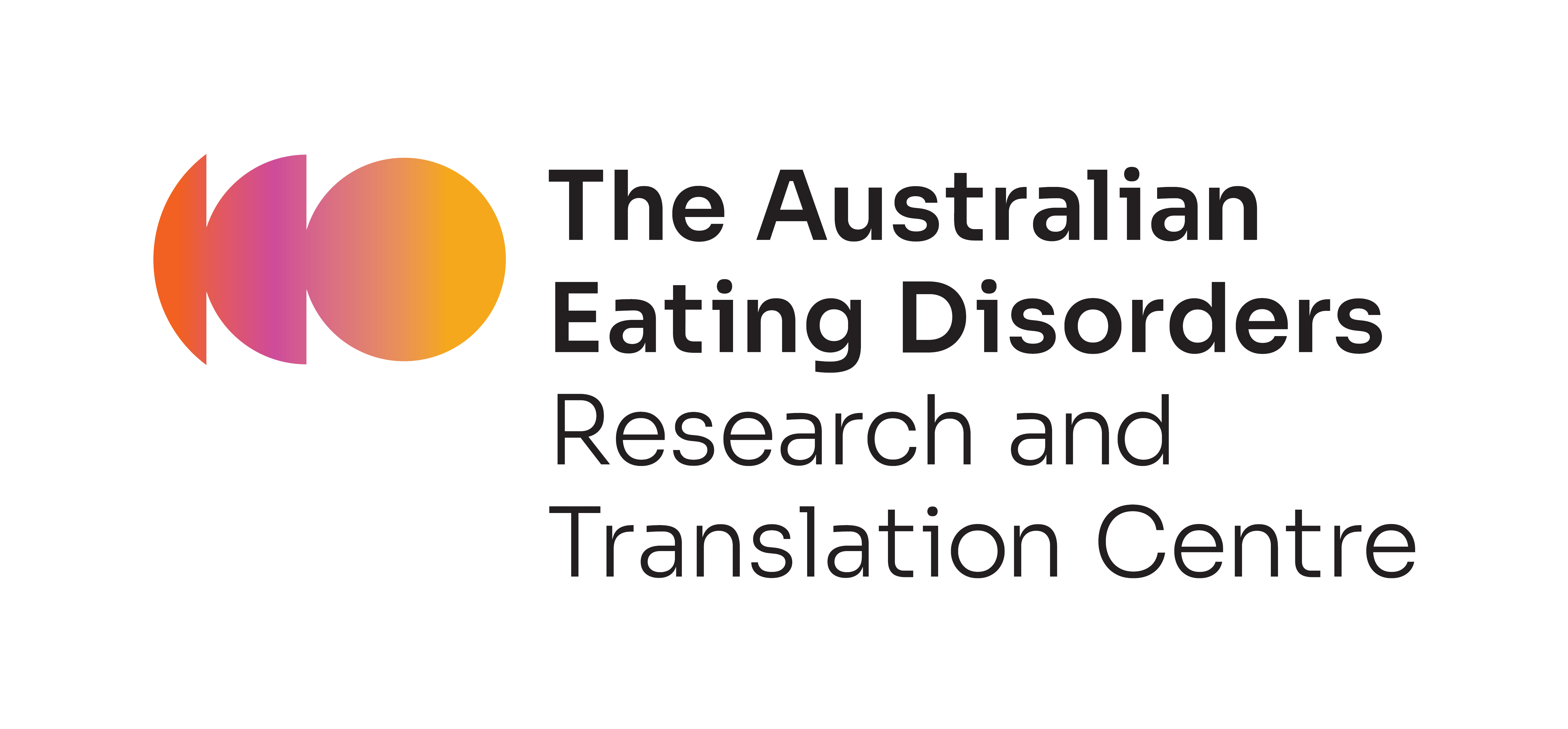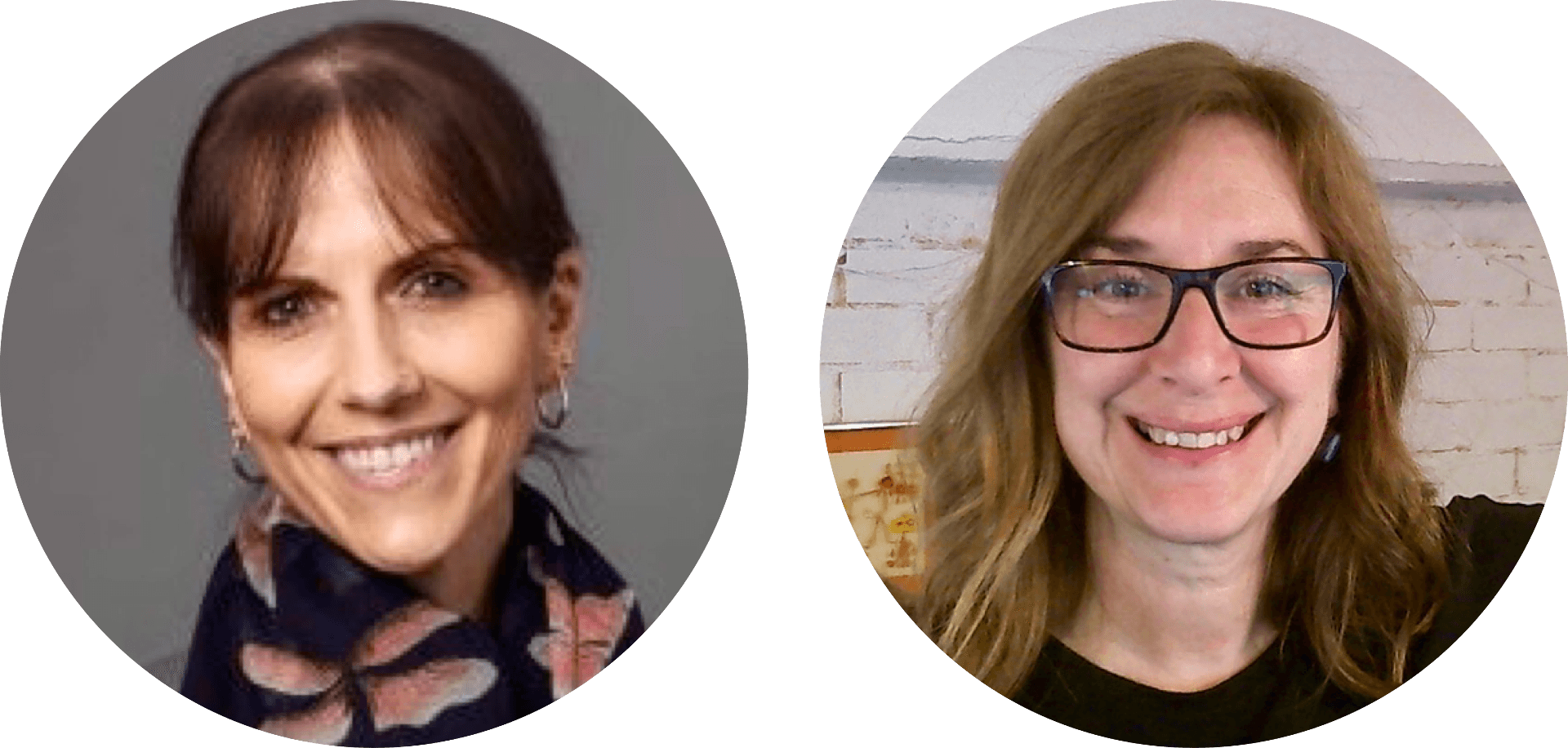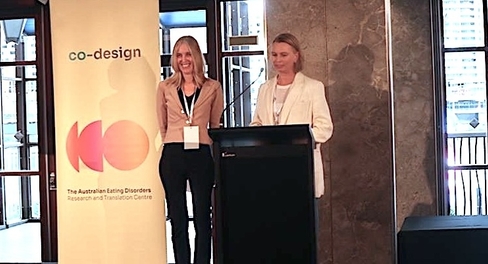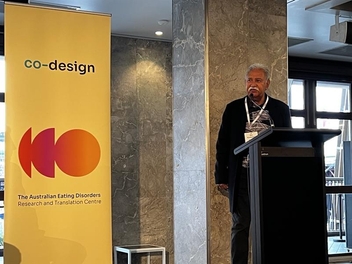Open for applications from people with lived experience expertise, the IgnitED Fund offers grants of up to $25,000 for the development of the testing of innovative research ideas that have the potential to positively impact the health and social and emotional wellbeing of people by eating disorders.
At least one IgnitED grant will be awarded to a Lived Experience-led applicant. This includes people who have or had a personal experience of an eating disorder, as well as a family member, sibling, partner, carer, loved one or supporter of someone who has experienced an eating disorder. Successful applicants will engage in co-design with research, lived experience, and clinical or community expertise to test new ideas in a research methodology. They will also partner with the Centre’s Lived Experience Co-Production Co Leads, Shannon Calvert and Genevieve Pepin.
Shannon Calvert is a Lived Experience educator, advisor and international speaker with a powerful testimony of recovery after experiencing a severe and enduring eating disorder for 30 years. With Consumer Advisory expertise, Shannon has collaborated with a large range of organisations to facilitate person-centred, compassion-oriented and integrated healthcare – providing consultation to clinicians, researchers and services. Shannon has presented at national and international conferences, and contributed to educational and development training in eating disorders, mental health and palliative care.
Based in Perth, Shannon sits on several boards and committees in Australia and globally and is an active advocate for compassionate treatment, dignity and quality of life as a human right. In April, Shannon was appointed to the Million Minds Mental Health Research Mission expert advisory panel by the Federal Government; the panel will review the existing roadmap and develop an implementation plan to improve mental health and wellbeing of all Australians.
Genevieve Pepin is Associate Professor in occupational therapy and researcher at Deakin University in Melbourne. Her expertise and passion lies in carers research. This includes understanding the impact of eating disorders in function and daily activities of those with an eating disorder and their families, as well as the development of innovative interventions that promote best health outcomes. By collaborating with carers, co-design and co-production are central to Genevieve’s work – it starts with the questions and experiences of carers and consumers, and ends with results that are truly meaningful for them.
Genevieve believes in the importance of involving loved ones and acknowledging their unique contribution to early identification, diagnosis, treatment and recovery of people with an eating disorder. While authentic engagement with carers and supports of people with an eating disorder can come with challenges, they have helped Genevieve to become a strong advocate for family and carer inclusivity within eating disorder research. She is resolved in her drive to partner with families, carers and supports of people with eating disorders to ensure that research is informed by their expertise and experiences.
According to the Co-Leads, the IgnitED grant initiative places people with lived and living experience at the core of scientific work – offering an opportunity for supports to be part of the co-design team: to have lived experience-led ideas acknowledged and developed from the ground up, and to enable positive impact on the lives of everyone who may be affected by eating disorders.
“Partnering with people with lived and living experiences of eating disorders – including families, supporters and carers – ultimately achieves shared, authentic and improved outcomes for all. When we are committed to working together, we can and will attain excellence as we continue to develop and shape our work and future.” – Shannon Calvert, Lived Experience Co-Production Co-Lead
“People with a lived or living experience of an eating disorder contribute invaluable and diverse perspectives to research,” said Shannon. “All voices – whether from a health professional, researcher, scientist or someone with lived experience – provide insights and perspectives that cannot be obtained from quantitative data alone.”
The contribution of carers and family members such as siblings and other supports are imperative to progressing eating disorders research.
“We must understand that carers and family members have unique and in-depth knowledge of people with eating disorders, including insights into their contexts and situations which no other professional – even the most competent and caring – has.” – Associate Professor Genevieve Pepin, Lived Experience Co-Production Co-Lead
According to Genevieve, there is no room for hierarchies in genuinely co-designed research: “It is a horizontal process where power and knowledge is shared, and we take the time to prioritise and build strong and meaningful relationships.”
“There is so much we can learn from listening to carers and family members,” said Genevieve. “They need their voices to be heard and their knowledge acknowledged and considered regarding the journey of their loved ones – from early identification to diagnosis, and to treatment and recovery.”
Lived Experience Co-Production is a core program at the Centre to ensure lived experience expertise is interwoven across the Centre's governance and all work streams. The Co-Leads will work in collaboration and consultation with all lived experience organisations and advisory groups across Australia, including LGBTQI+ and broader underrepresented groups across the country.
People with lived experience expertise are strongly encouraged to submit an application for the IgnitED Fund. Applications close Wednesday 15 June 2022.
For enquiries about IgnitED, please contact: admin@eatingdisordersresearch.org.au
If you or a loved one need support, please call the national eating disorders support helpline at Butterfly on 1800 ED HOPE (1800 33 4673).
Recommended resources on lived experience-based co-design:




